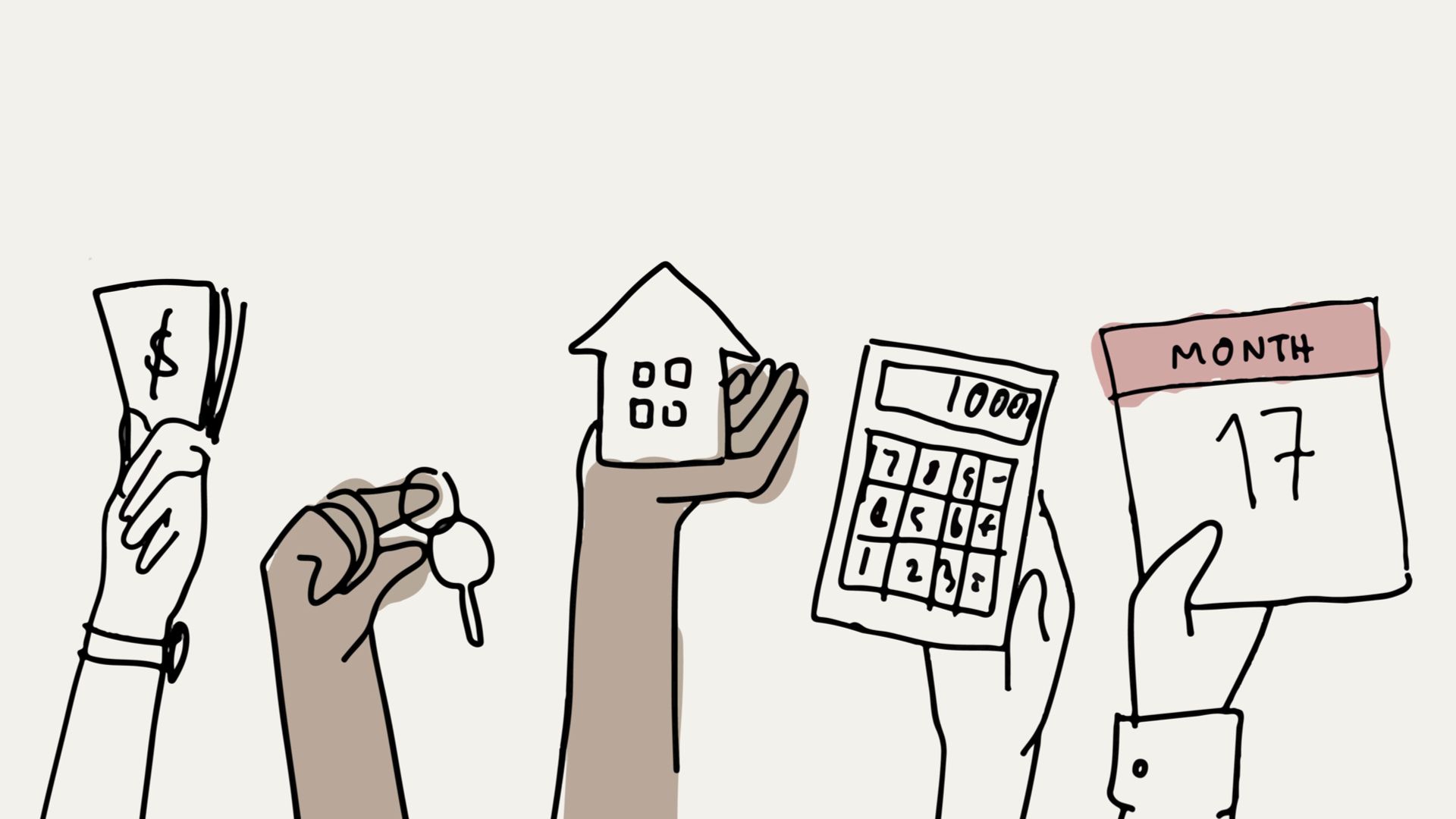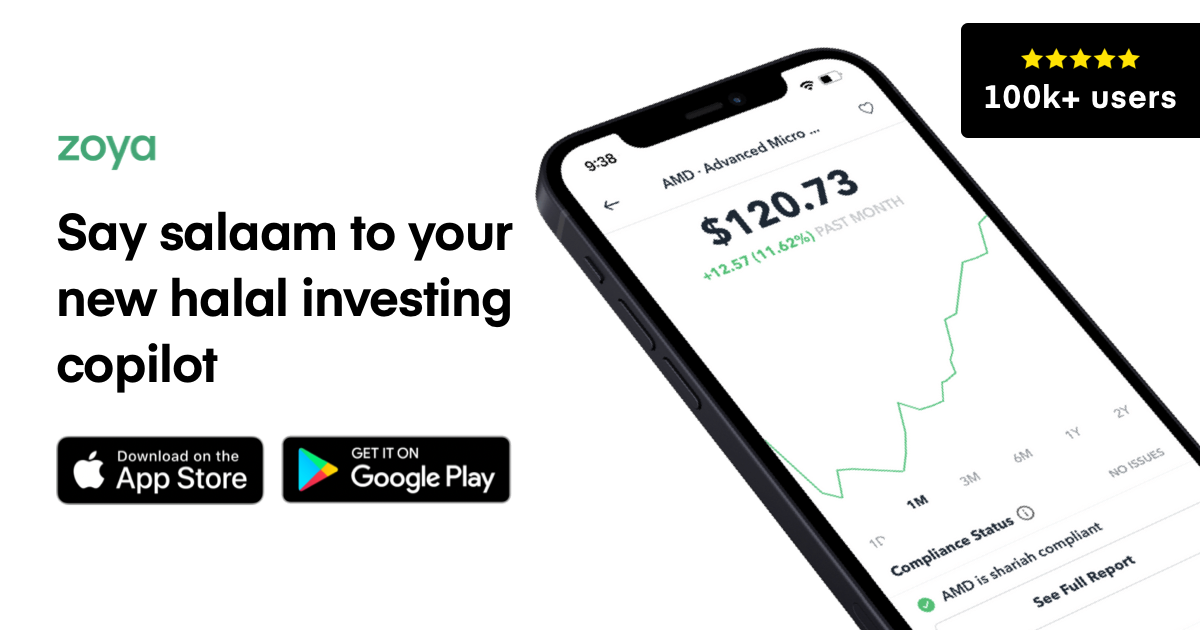What is Islamic Finance and How Does it Relate to Me?

If the pandemic has taught us anything, it’s the importance of a good chair and a stable wifi connection. Aside from that, though, the pandemic has allowed a whole host of investors to get to grips with building wealth. More and more millennials and zoomers alike enjoy the benefits of retail investing - and Muslims are no different!
But before we get into halal investing, let’s take a closer look at Islamic Finance. And, more importantly, how it relates to you.
Historically, Islamic civilizations have been rich in creating and sustaining ethical models for everyday use. From healthcare to education, we’ve seen the massive benefits community-centered businesses can offer and our economic system is no different.
Interlocking the drive for social good and embracing moral business practices, Islamic Finance is rooted in building a better, more equitable lifestyle where the community is at the helm.
These principles are at the core philosophy of Islamic Finance:
- No exposure to riba (usury, or what you and I would call interest). Whether you’re accumulating interest on your savings or adding a fee on top of money you’ve loaned a pal, it’s all a no-go. That’s because interest is recognized as exploitative, as it encourages the growth of a wealth gap. Your money cannot cause harm to society, thus Islamic financial services divest from alcohol, gambling, and tobacco companies.
- Not ascribing to gharar (risk or uncertainty). All parties should be confident in what they’re investing in, and the investment should exist in real-time. Buyers should be certain of their ownership. Examples of gharar in conventional finance include futures and options contracts, which have delivery dates set in the future.
- No maysir (speculation, more commonly referred to as gambling). Gambling creates potential wealth from chance rather than productivity, thus eliminating the God-conscious intention behind wealth creation. It can spur unhealthy attachments to wealth, including greed, and propel an individual into debt due to its addictive nature.
What makes a financial model "Islamic"?
An Islamic economic system is rooted in fairness, equity, and socially responsible behavior. This differs significantly from conventional, mainstream banking, where banks do not share in the profit and loss of a business. Instead, loans are provided to companies and individuals, with interest attached to repayments.
For example, Adam wants to open a bakery, and he needs a loan of $12,000. The bank asks for a guarantee to ensure Adam is able to repay the loan so they use his condo as collateral to secure the loan. The bank then offers Adam the loan, but he’ll need to pay the bank interest at 10% each year (that’s $100 in interest each month). The longer Adam takes to pay off the loan, the more interest he’ll accumulate. If he can’t pay off the interest on the loan - there’s more interest to pay on top of that. And if he can’t manage his repayments, the bank is able to repossess his assets, i.e the condo.
As you can see, it can become a vicious cycle as the interest applied can accumulate, thus allowing the bank to make more money from the initial loan provided. This encourages a wider disparity in wealth, increasing economic inequality within society.
But where is the bank getting the money for Adam’s loan in the first place?
To put it simply, Adam is able to acquire a loan, as the bank uses the savings of other customers. These savers are then rewarded for depositing their money at the bank by being paid a fraction of the interest made on the loan.
So what happens to the rest of the money made?
The bank profits from the interest provided on the loan, where they take a substantial percentage of the interest gained from providing the loan and acting as the go-between. It’s important to note, whilst the bank is circulating money across different accounts, account holders who “loan” the money out, always have access to the money in their account from the bank, i.e. they will always be able to withdraw the entirety of their account. Individuals with savings do not know where their money is going or which businesses they may be investing in, giving way to investing in potentially haram companies or activities.
With that in mind, capital is necessary for growth. So how does this work under a halal finance framework?
Under an Islamic financial model, loans are reframed as ‘Sharia-compliant finance agreements’, where individuals pay a deposit and then choose a plan that’s best suited to their needs.
These include:
- Ijara - Where the bank purchases the asset (let’s say property) you would like to buy, and then leases it to you for a fixed term at an agreed monthly cost. When the term is over, the ownership is transferred to you.
- Mushakara - A co-ownership agreement, where you and the bank each own a share of the property. Each time you make a repayment, you are buying the bank out of their share.
- Murabaha is where the bank buys the property on your behalf based on your promise to repay them. The bank then sells the property back to you at a higher cost which you pay in equal installments over a fixed period of time. The difference in the market value of the property and the price the bank sells it to you is deemed a reward to the bank for taking on the initial risk.
Historically, Islamic banking has lacked a competitive edge and has proven to be a costly endeavor for many, with few seeing the material or financial benefits as compared to conventional models. However, as new companies with more viable models enter the market, only time will tell how feasible the model is financially when compared to conventional loans.
How does an Islamic financial contract work?
Islamic Finance provides a guided path, riding in the highs and lows of sharing profit or loss with individuals. It works differently from conventional banking where one party (in this case the bank) brings the capital and the other works hard, using the capital offered. There is an agreement between the lender and borrower to split the profit, whilst the lender is also responsible for absorbing the financial losses should the business fail. This is commonly referred to as a mudarabah or partnership in profit.
More recently, there have been discussions as to whether the theory and practice of Islamic Finance match up. Expert Safdar Alam, CEO of Maydan Capital, proposes the reward some Islamic banks gain, mimics that of a conventional bank, where interest is being repackaged as a reward. However, it can also be deemed the bank is providing individuals with an investment opportunity rather than loaning out money.
THREAD
— Safdar Alam (@SafdarAlam) February 15, 2020
in islamic finance, as Muslims, it is easy to be offended at the suggestion that some of it might, in fact, be controversial and be breaking Shariah Rules.
However, we must recognise that there is significant amount of disagreement on a scholarly level about this.
Regardless, it’s safe to say Islamic Finance promotes responsibility by providing stability and creating new opportunities, aiding the success of businesses in an active manner as opposed to a passive format, where despite the success or failure of the business, the objective is financial gain. This can promote unhealthy and unsustainable financial habits, ultimately affecting the wellbeing of society through wealth disparities.
What does this mean for you?
There has been much discussion amongst halal financial technology companies, fintechs, on how finance can be both accessible, in line with Islamic principles, and still provide great value and benefit to users. Zoya provides a platform to learn and develop key financial skills through financial literacy and community building.
The app enables users to understand how to construct an investment portfolio in real-time that adheres to Islamic principles, via in-depth research reports highlighting exactly how a stock is shariah-compliant, alerts if shariah governance of stock changes, as well as screening over 2,500 exchange-traded funds and mutual funds.

Zoya: Halal Stocks, ETFs, Mutual Funds
Zoya makes halal investing easy by helping you build and monitor a shariah compliant investment portfolio with confidence and clarity.
Islamic Fintechs show great promise for a new generation of investors looking to make more socially responsible investment choices, bridging the gap between innovation and ethics. Islamic Finance has come a long way from minimal choice, retail banks that lacked product diversification and an understanding of the needs of Muslims at the time. Millennials and Gen-Z are looking forward, fusing their beliefs and the knowledge that technology can bring them the financial solutions they need today.
